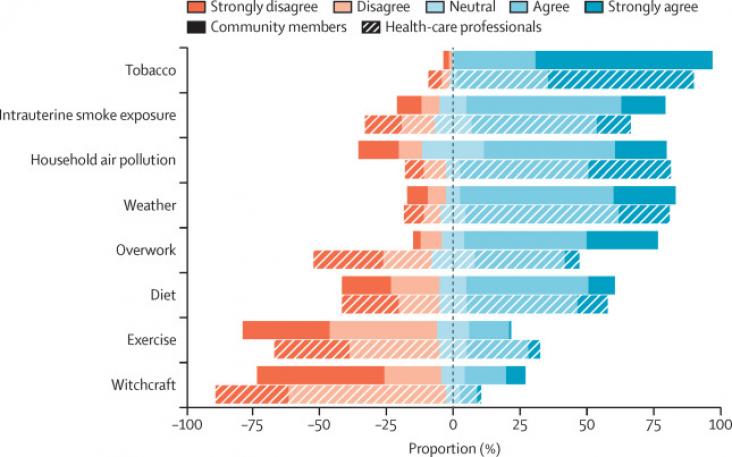This Comment supports SDGs 3 and 10 by explaining how people with disabilities are more likely to suffer adverse health effects from climate change, for a variety of reasons, and emphasising that people with disabilities should be considered, and included in planning of, climate change mitigation and adaptation efforts.
This paper studied the heavy metal concentrations in the study area had a temporal decreasing trend compared to previous studies, which may be due to the reduction in human activities.
The COVID-19 pandemic has devastated communities throughout the world. However, the negative impacts of another pandemic, affecting cities worldwide, arguably rival those of COVID.
Background: Combustion-related nitrogen dioxide (NO2) air pollution is associated with paediatric asthma incidence.

Background: Effectiveness of health programmes can be undermined when the implementation misaligns with local beliefs and behaviours.
Background: Hepatitis C elimination may be possible with broad uptake of direct-acting antiviral treatments (DAAs).
Elsevier,
Biomedical Engineering Applications for People with Disabilities and the Elderly in the COVID-19 Pandemic and Beyond, Volume , 1 January 2022
This content aligns with Goal 3: Good Health and Wellbeing as well as Goal 10: Reducing Inequalities by examining the impact of the COVID-19 pandemic on the physical and mental health of the elderly.
This content aligns with Goal 3: Good Health and Wellbeing as well as Goal 10: Reducing Inequalities by exploring herbal medicines role in depression to provide alternatives to current psychiatric drugs which may cause many induced side effects.
This content aligns with Goal 3: Good Health and Wellbeing as well as Goal 10: Reducing Inequalities by providing different levels and magnitude of explanation for the various behavioral symptoms seen in individuals with ASD, collectively providing a comprehensive picture of this disorder.
Elsevier,
Managing Treatment-Resistant Depression: Road to Novel Therapeutics, Volume , 1 January 2022
This content aligns with Goal 3: Good Health and Wellbeing as well as Goal 10: Reducing Inequalities by reviewing the evidence base for treatment of youth with depression, with a focus on management of treatment-resistant depression.
